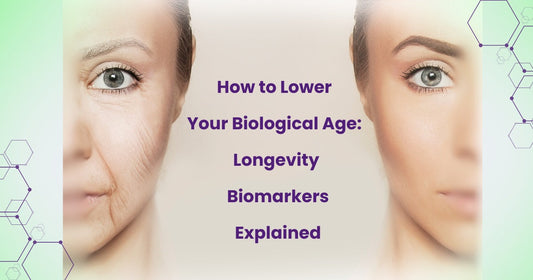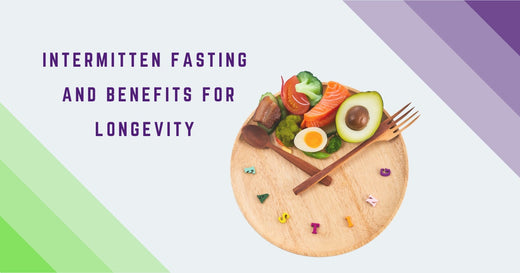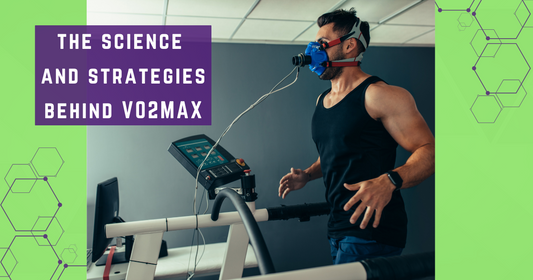While aging is a natural process, there are powerful ways to slow it down and maintain our health and vitality as we grow older. One of the key strategies is incorporating the right combination of stress management, good sleep, diet, exercise, lifestyle practices, supplementation, and hormetic stressors that promote cellular rejuvenation and resilience.
Stress Management and Mindfulness
Chronic stress is a major contributor to aging. It increases the production of cortisol, a hormone that, in excess, can lead to inflammation, weight gain, and impaired immune function. Practicing mindfulness techniques such as meditation, deep breathing, or yoga can help reduce stress levels, improving mental and physical health.
Stress management is essential for lowering inflammation, protecting heart health, and promoting longevity. Activities like walking in nature, journaling, or spending time with loved ones can also be great ways to unwind and reset.
The Importance of Good Sleep
Sleep is a cornerstone of health and longevity. During deep sleep, the body repairs tissues, clears out metabolic waste from the brain, and regulates hormones that control appetite and stress. Consistently poor sleep is linked to a host of aging-related issues, including cognitive decline, weakened immunity, and increased risk of chronic conditions such as heart disease and diabetes.
Aim for 7-9 hours of high-quality sleep per night. To improve sleep, establish a relaxing bedtime routine, reduce exposure to blue light in the evening, and maintain a consistent sleep schedule. Good sleep hygiene promotes physical recovery, mental clarity, and emotional stability, all of which are vital for slowing the aging process.
Diet and Hydration for Longevity
A balanced, nutrient-dense diet is essential for slowing the aging process. Key components include:
- Whole, plant-based foods: Focus on a variety of vegetables, fruits, whole grains, and legumes to provide essential nutrients and antioxidants.
- Lean proteins: Chicken, fish, and plant-based options like legumes deliver high-quality protein. Distribute protein intake evenly throughout the day to support muscle maintenance and recovery, particularly after exercise.
- Healthy fats: Incorporate avocados, nuts, seeds, and olive oil for heart health and inflammation control.
- Antioxidant-rich vegetables and fruits: Cruciferous vegetables (broccoli, cauliflower) and berries are packed with antioxidants that reduce oxidative stress, a key factor in aging.
- Fiber-rich foods: Whole grains and legumes provide fiber to aid digestion and lower the risk of chronic diseases.
- Hydration: Staying well-hydrated is critical for cellular function, digestion, and skin health. Drink water throughout the day and include hydrating foods like cucumbers, melons, and leafy greens.
By focusing on these elements, you can enhance your overall health and longevity.
Exercise for Longevity: HIIT, Strength Training, and Cardio
Physical activity plays a critical role in slowing down the aging process. Certain types of exercise are particularly effective:
-
High-Intensity Interval Training (HIIT):
HIIT involves short bursts of intense exercise followed by periods of rest. This type of workout has been shown to improve mitochondrial function, which declines with age. HIIT also promotes fat loss, boosts cardiovascular health, and increases insulin sensitivity, all of which contribute to longevity. Studies show that HIIT can enhance metabolic flexibility, making it a powerful tool for reducing the risk of age-related diseases. -
Strength Training:
As we age, we naturally lose muscle mass and strength (a condition called sarcopenia), which can lead to frailty and reduced mobility. Strength training, such as weightlifting or resistance exercises, helps maintain and build muscle mass, improves bone density, and enhances metabolic health. Strong muscles also support joint health, reduce the risk of injury, and promote overall physical function as we age. -
Cardio:
Cardiovascular exercises, like running, cycling, and swimming, are essential for heart health. Regular cardio strengthens the heart, improves circulation, and boosts lung capacity. It also promotes brain health by enhancing blood flow to the brain, helping to reduce the risk of neurodegenerative diseases. Cardio exercises also support fat burning and help maintain a healthy weight, both of which are critical for longevity.
Hormesis: The Power of Controlled Stress for Rejuvenation
Hormesis is the concept that exposing the body to mild, controlled stress can trigger adaptive responses that enhance resilience and longevity. Some key hormetic stressors include:
-
Intermittent Fasting (IF):
Intermittent fasting is one of the most well-researched strategies for longevity. By periodically restricting food intake, the body activates cellular repair processes, including autophagy—the removal of damaged cells and proteins. This promotes healthier, younger cells. IF can also improve insulin sensitivity, reduce inflammation, and support weight management, all of which contribute to slowing down the aging process. -
Cold Therapy (Cold Exposure):
Cold exposure, whether through cold plunges, ice baths, or cold showers, activates brown fat and improves mitochondrial function, leading to increased energy expenditure and fat burning. Cold therapy also triggers hormesis by inducing mild stress, which helps cells become more resilient. This practice has been shown to reduce inflammation, improve circulation, and boost immune function, all of which contribute to cellular rejuvenation. -
Heat Exposure (Sauna Therapy):
On the opposite end of the spectrum, heat therapy, such as using saunas, can also promote longevity. Regular sauna use has been linked to improved cardiovascular health, enhanced detoxification through sweating, and the activation of heat shock proteins that protect against cellular damage. Heat therapy reduces the risk of cardiovascular diseases and promotes a longer, healthier life. -
Caloric Restriction:
Research has shown that reducing calorie intake without malnutrition can extend lifespan in various species. Caloric restriction promotes metabolic efficiency and activates protective cellular pathways that enhance DNA repair and reduce oxidative damage. While extreme caloric restriction isn’t practical for everyone, adopting a nutrient-dense diet with occasional caloric moderation can still deliver longevity benefits.
Pushing Beyond Comfort: Cellular Rejuvenation and Adaptation
One of the keys to slowing aging is consistently pushing ourselves beyond our comfort zones. When we introduce the body to mild stressors—whether through intense exercise, fasting, or cold exposure—it triggers a response that strengthens cells, boosts immunity, and promotes adaptation. This process of cellular rejuvenation is essential for long-term health.
For example, HIIT pushes our cardiovascular system and muscles beyond their comfort zone, while intermittent fasting challenges the body's metabolic processes. These stressors stimulate the body to adapt, repair, and become more resilient, much like how strength training builds muscle by pushing it to its limits. The more we challenge ourselves, the more robust our systems become, slowing down the processes of aging.
By stepping out of our comfort zones regularly, we trigger powerful biological mechanisms that enhance longevity, protect against disease, and promote overall vitality.
Incorporating these strategies—exercise, hormesis, and pushing the limits—into your daily routine can lead to significant improvements in how you age. By understanding and leveraging these natural, science-backed methods, you can slow the aging process, increase cellular health, and live a longer, healthier life.
The Power of Socializing
Human beings are inherently social creatures, and maintaining strong social connections is vital for longevity. Numerous studies have shown that individuals who stay socially active live longer, healthier lives. Socializing helps reduce stress, ward off depression, and improve cognitive function. Engaging in meaningful relationships provides emotional support, which strengthens mental health and promotes overall well-being.
Make time for family and friends, join clubs or groups with shared interests, and stay engaged with your community. Staying connected reduces loneliness and supports a healthier, longer life.
Supplementation
While a balanced, nutrient-rich diet is the foundation of good health, certain supplements can further enhance longevity. Here are some scientifically backed supplements that can support healthy aging:
-
Antioxidants (Vitamin C, Vitamin E, and CoQ10):
Antioxidants help neutralize free radicals, reducing oxidative stress and protecting cells from damage. -
Omega-3 Fatty Acids:
Found in fish oil, omega-3s support heart health, reduce inflammation, and improve brain function. These essential fatty acids are linked to improved longevity by lowering the risk of heart disease and supporting cognitive health. -
NAD+ Boosters (e.g., NMN or NR):
NAD+ is a molecule that plays a key role in energy production and DNA repair. As we age, NAD+ levels decline, but supplements like NMN (nicotinamide mononucleotide) or NR (nicotinamide riboside) can help boost levels, potentially improving mitochondrial function and extending lifespan. -
Resveratrol:
This compound, found in red wine and certain plants, has been shown to activate longevity-related pathways and mimic the effects of caloric restriction, promoting cellular health. -
Vitamin D:
Adequate levels of vitamin D are crucial for immune function, bone health, and cognitive performance. Since many people are deficient, supplementation can be a simple way to improve longevity.
Before starting any new supplement regimen, it’s wise to consult with a healthcare provider, as individual needs can vary.
Conclusion: Aging Is Inevitable, But We Can Slow It
Aging is a natural process, but through smart lifestyle choices, we can significantly slow it down. Regular exercise, hormetic stress, quality sleep, social connections, a balanced diet, and the right supplements all contribute to a longer, healthier life. By pushing ourselves beyond comfort zones and staying consistent in these practices, we can support our body's natural ability to rejuvenate, protecting our cells and ensuring that we age with grace and vitality.




